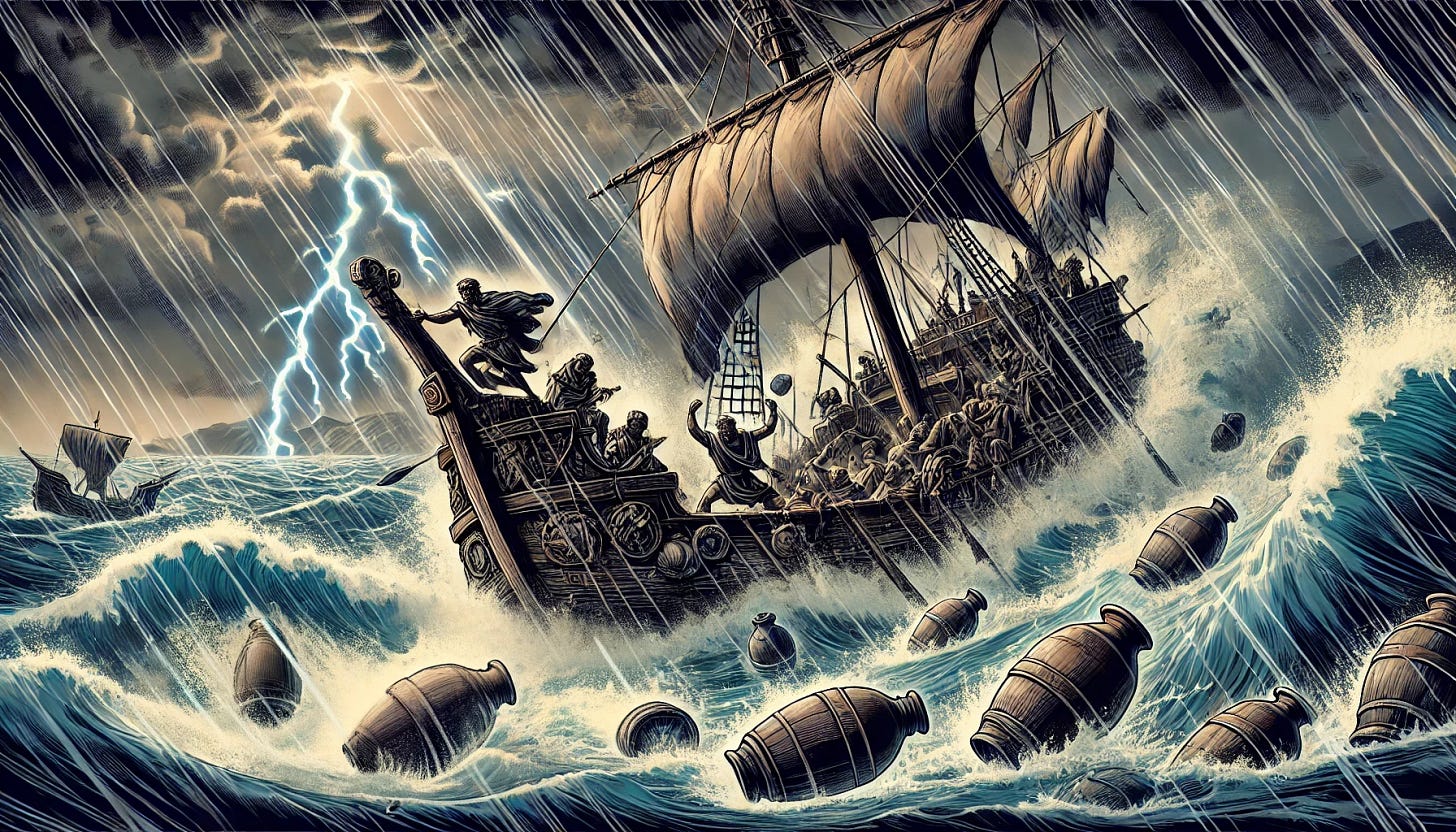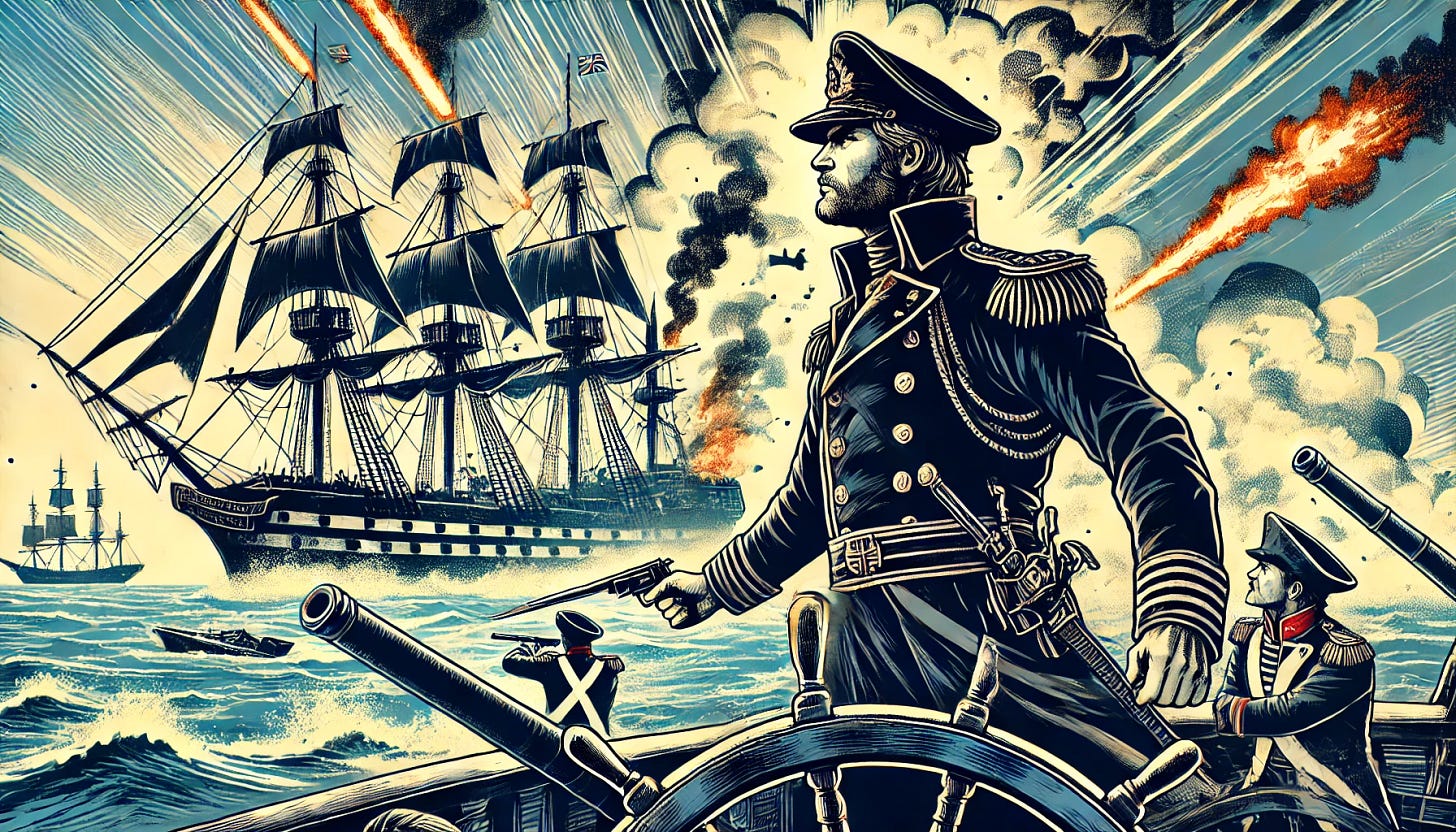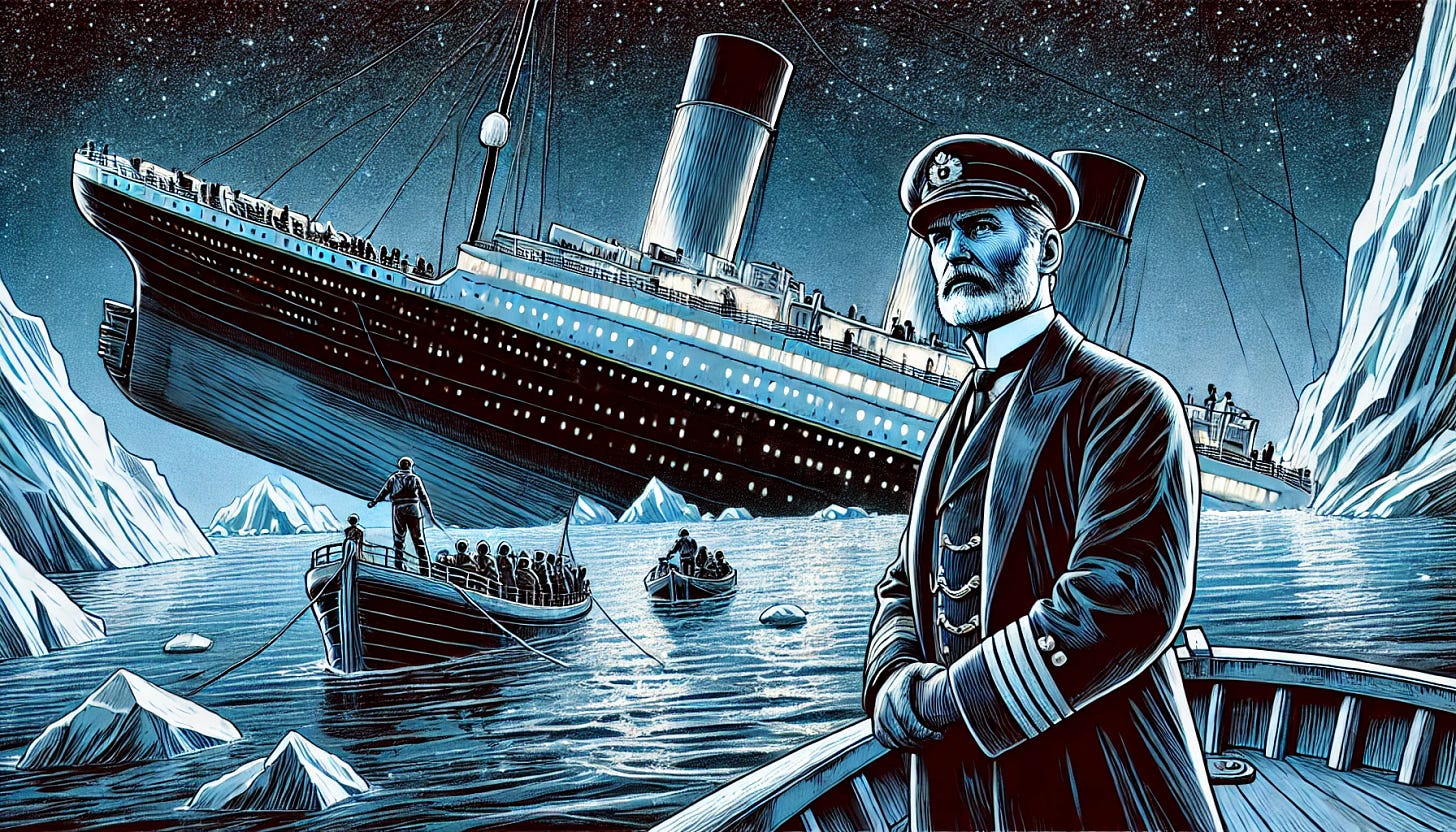Going Down with the Ship
Maritime law—commonly referred to as the law of the sea—had been dealing with trade between kingdoms for literal millennia, but the most notable effort in the Mediterranean was called the Rhodian Sea Law. Compiled over several centuries from perhaps the 8th century BCE onwards, this lawbook became universally recognized within the Roman Empire, who standardized so many of the things we use today.
You might imagine that the crew was the main focus, but the most well-known laws were about the cargo. Property, not people, ultimately shaped these laws into existence, and there were good reasons for this.
The rules around jettisoning—dumping cargo in order to keep the ship from sinking—tell us a lot about these concerns, and they were the most famous of all the Rhodian Sea Laws. The idea was that if something was thrown overboard, everyone on board would share equally in the loss.
It might seem callous to focus so much on property here, but the truth is that these ventures were incredibly dangerous, and anyone going on them was very likely to be doing so with their eyes wide open as to the deadly risks involved. Further, the fights over the lost riches could lead to even more bloodshed and loss of life.
Today, this is how joint stock companies operate. If the company loses money over a given period of time, all of the shareholders split this loss evenly, in proportion to their ownership stake. This idea of sharing in the loss was important in the early formation of limited liability companies centuries later.
The Romans liked these laws so much that they were still using them centuries later, spreading these ideas throughout most of Europe over the ensuing centuries. Eventually, a new set of laws arose that was a bit more formal than the existing Sea Law.
These laws originated in Oleron, a duchy belonging to Eleanor of Aquitaine. As fate would have it, Eleanor was about to become (also) Queen of England, linking these two powerful, growing kingdoms together in a way that could propagate ideas throughout Europe like never before.
The ideas contained in the Rolls of Oleron, as they came to be called, were ripe for the spreading.
Spread they did, and the most powerful navy in the world for centuries—the Royal Navy—ultimately used the Rolls of Oleron as the basis for modern maritime law, and today’s international law is built from those laws too.
Now, I don’t want to make too much of the jettison rule here. It’s very sensible! Imagine that there’s a ship with a tiny leak in it, so you have to throw some stuff overboard. What do you pick?
You probably grab some combination of the heaviest and the cheapest stuff, right? Well, sure, but if the ship is about to sink, you might prioritize that chest full of gold coins over the empty chest sitting over there. In such a situation, a captain (or whoever is throwing the stuff overboard) probably doesn’t want to stop to consider whether the rich person is going to demand they get paid back for those gold coins.
Instead, it proved far safer to simply split the expenses later. This also meant that outside investors could put money up front to help fund these expensive voyages, and so if something was lost on the ship, they’d share in those losses, too.
The Royal Navy took these rules, along with other existing laws, and built a more comprehensive and rigid set of laws. Among these laws was one unwritten rule, something that strikes me as dark and sinister, but also coldly logical. This is the idea that the captain must go down with their ship.
This idea wasn’t ever encoded into maritime law, but the Age of Sail nevertheless ushered this concept into prominence. During this era, the British Empire rose dramatically in prominence, ultimately controlling about a quarter of the land and people on planet Earth, and this was largely thanks to the prominence and dominance of the Royal Navy.
A captain abandoning their ship was seen as the most serious dereliction of duty, tantamount to killing someone. Romanticism and the idea that noble sacrifice in the name of one’s country took over the minds of much of Europe, especially among the British.
At the same time, a ship is just property. Why on earth would we want a captain to die, just because their ship is sinking?
I think those old jettison laws give us the answer. The idea of preventing economic loss being somehow equivalent with the loss of human life sounds callous to our modern sentiment. Today, human life is regarded as infinitely valuable, but back when you were lucky to survive to the ripe old age of 40, things were different.
At the same time, the economic opportunity presented by these adventures/investments might well have saved lots of lives. That chest of gold might have helped a family start a farm, feeding generations of descendants. Maybe the investor/adventurer was now able to build a home for their family, keeping them from being exposed to the elements.
Economics can be life or death, too. This idea of equating a captain’s life with terrible economic loss is notable on that level.
It’s also notable because of the outcome it produces. When a captain feels the pressure to go down with the ship, they are making the boldest possible statement that they have done f’d up. There’s no other sort of sacrifice that will do for allowing the entire ship to sink, or so the idea goes.
If a captain knows they’re going to die if they allow the ship to sink, they’re probably very likely to do everything within their power to prevent that from happening, right? This might be one of those areas where justice takes a back seat to pragmatism, but let me know whether you think that’s right:
When the Titanic sank in 1912, we saw this idea reinforced and reiterated in the most dramatic fashion possible. Captain Edward Smith chose to die along with the largest naval vessel ever to operate, so big and supposedly well-built that people said it was unsinkable.
Today, we have bankruptcy laws to protect individual people from going down with their metaphorical ships. Today’s adventurers still want to put their capital at risk, but we draw a more firm line between economics and safety or health. However, there are still lots of areas where one crosses over into the other, like when you need to raise funds to build a new hospital, ultimately saving many more lives.
I'm glad nobody has to go down with a failed business! A captain choosing to end their life when they cause others to die due to negligence is one thing, but falling on your own sword because a small business venture doesn’t take off seems insane by modern standards.
We give them another try at some point in the future, largely because (hopefully) nobody dies when you try to launch a business venture today. Can we chalk this up to human progress? I think we can.
Let me ask you a question for today: how good is this analogy? How does a captain going down with their ship compare to modern bankruptcy? What do you make of the idea of human life and economics being considered alongside one another, especially when economics affects human life directly?






One reason I joined the army and not the navy.
It's a solid rule for airplaine pilots, too.
Air travel would be a whole different ballgame otherwise.
"Ladies and gentlemen, this is your captain speaking. If you look out of the window to your right, you'll see me plunging down to the ground with a parachute behind my back. Don't worry about me, I'll be fine. Also, good luck!"